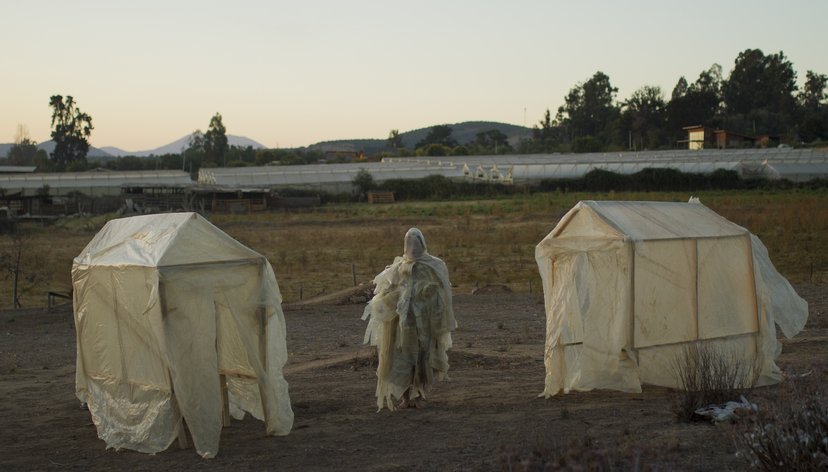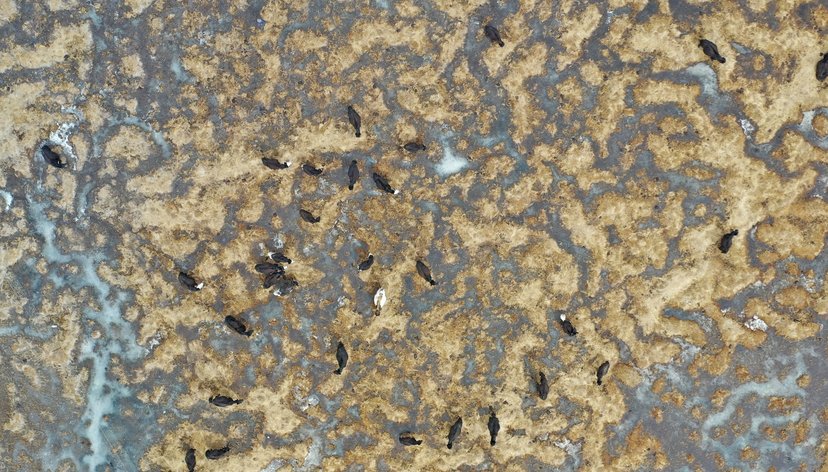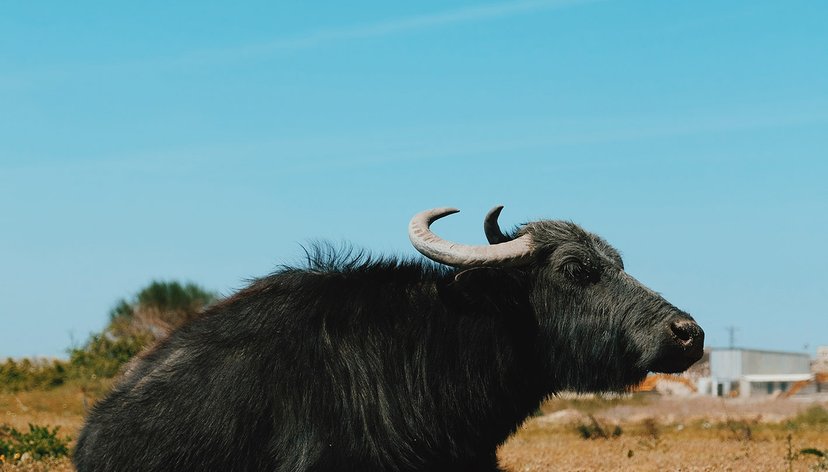
Key details
Date
- 21 May 2025
Read time
- 5 minutes
As part of the CLIMAVORE x Jameel at the RCA Monoculture Meltdown project, Cooking Sections (Alon Schwabe and Daniel Fernández Pascual) is opening an exhibition of their work Rights to Seeds, Rights of Seeds at the Museo delle Civiltà in Rome.
Art and agriculture are not usually found side by side, but a new installation called Rights to Seeds, Rights of Seeds at the Museo delle Civiltà in Rome reveals how a collaboration across these fields can produce compelling results.
This 'living collection' highlights the pressing climate challenges facing arid farmland and demonstrates the power of seed saving as a tool for resilience. It works with nearly 40 farms and cooperatives in Sicily and Puglia—Italy's regions most affected by aridity. These farmers have propagated more than 125 varieties of diverse peasant seeds, which are displayed in bespoke ceramic vessels—an homage to traditional seed storage methods of southern Italy and the hardy soils these seeds can endure.

Rights to Seeds, Rights of Seeds installation at the Museo delle Civiltà in Rome
Rights to Seeds, Rights of Seeds is part of the CLIMAVORE x Jameel at RCA research project, led by Daniel Fernández Pascual and Alon Schwabe, co-founders of the art and architectural practice Cooking Sections and Readers in Architecture and Spatial Practice in the RCA School of Architecture, with Project Manager Dani Burrows, Research Associate Enrico Milazzo, and Project Coordinators Gabriella Patera and Davide Palmieri. This three-year initiative is divided into two focused research areas: one addressing the impacts of wetland draining around Istanbul, and the other concentrating on dryland farming in southern Italy, where the Rights to Seeds, Rights of Seeds installation is rooted.
The project challenges restrictive seed laws that have banned traditional seed-sharing practices, advocating for agro-biodiversity preservation and policy reform. “Monoculture Meltdown asks: how do we use the infrastructure of cultural institutions to promote societal change, and what role can they play?” says Schwabe. “There's a lot of potential for what museums can be doing, and through our work, we are exploring that potential in different ways.”
The project’s cross-disciplinary approach is what makes it so impactful. In October 2023, a CLIMAVORE Assembly brought together growers, seed propagators, policymakers, artists, educators, chefs, and environmentalists to discuss the plight of peasant seeds. This exchange of ideas emphasised that culture and agriculture are deeply connected—a relationship that industrialisation has often overlooked.

Drought Nursery at SeminAzioni in Lecce, Puglia
“We are certain that an awakening of these issues has begun, but we must continue to sow, sow, sow.”
Manager of the ORTHIA farming project at La Luna nel Pozzo in Puglia
“Agriculture—and before it, all forms of food gathering and sourcing—shaped the foundations of many of the world’s cultures,” Schwabe explains. “But over time, the rise of industrial processes have severed the link between culture and agriculture. Our work is about restoring that connection, bringing together growers, herders, consumers, and everyone involved in food production to re-establish this cultural connection.”
For farmers like Marco Reho, owner of Capiverdi farm in Puglia and a member of agricultural association SeminAzioni, this project has created a sense of community. “Researching and planting these seeds has connected us with a network of farmers who care about climate issues and biodiversity,” he says. Reho is also one of three 'drought nurseries' in Puglia, set up by Monoculture Meltdown, where workshops on identification, conservation, and propagation of peasant seeds are held.

Marco Reho, owner of Capiverdi farm in Puglia and a member of agricultural association SeminAzioni
Yet the challenges of seed preservation are significant. “Although seeds are precious—holding history, genetic memory, and biodiversity—growing and preserving them is a difficult task,” Reho explains. “This discourages the farmers and forces them to buy [patented] seedlings directly from a nursery, which cannot provide plants that come from farmer-adapted seeds. This makes the work easier, but knowledge and biodiversity are lost.”
For Reho and other farmers involved, the project has not only strengthened their sense of community but also reaffirmed the cultural importance of seed saving in the face of increasing periods of drought and water scarcity. “We think that as a third sector organisation, as activists, we have a mission to create information on agro-ecological issues so that we can respect all plants and animals with which we co-evolve,” says Reho. "And creating knowledge on the use of peasant seeds is a central point in achieving this goal.”
Natascia Fogu, Manager of the ORTHIA farming project at La Luna nel Pozzo in Puglia, shares this sense of purpose. “The hope is that our community, thanks to actions like Monoculture Meltdown, will create a movement of real change,” she says. “We are certain that an awakening of these issues has begun, but we must continue to sow, sow, sow.”

Drought Nursery at SeminAzioni in Lecce, Puglia
The project has also become a bridge between generations of farmers. “Traditional knowledge about seed saving is often held by older generations, while younger farmers may be disconnected from these practices,” says Gabriella Patera, one of the local coordinators. “This project has created a space for these generations to come together, exchange knowledge, and collaborate in preserving and regenerating this essential wisdom.”
Rights to Seeds, Rights of Seeds also seeks to address the legal barriers that limit seed sharing. Schwabe and Pascual are collaborating with lawyers from Italy and the US to propose regional and national amendments to existing seed laws. Their aim is to advocate for more sustainable and farmer-friendly practices by using a museum as a vehicle to create provenance for peasant seeds, and propagate them for cultural purposes as part of their “living collection”.

Drought Nursery at SeminAzioni in Lecce, Puglia
According to the Food and Agriculture Organisation (FAO), the importance of seed diversity is now being recognised at an international level, both for sustainable food production and for the resilience of agricultural systems. But despite this, global seed control is still concentrated among just four companies—Bayer, Corteva, Syngenta, and BASF—highlighting the need for grassroots initiatives like Monoculture Meltdown.
For Schwabe, this growing network of farmers is a natural evolution of CLIMAVORE’s work. “Monoculture Meltdown is very much a continuation of the work we've been doing at Cooking Sections,” he says. “But what's very exciting about this project is it builds on a much larger community of collaborators that really take ownership and stewardship so that it no longer belongs to us or other individuals—it belongs to the farmers and their expanding networks.”

Rights to Seeds, Rights of Seeds installation at the Museo delle Civiltà in Rome
More information
About CLIMAVORE x Jameel at RCA
CLIMAVORE x Jameel at RCA reimagines foodways for drylands and wetlands in the climate crisis. It was launched in 2023 as a partnership between CLIMAVORE and Community Jameel developed at the RCA to advance ecological networks to produce new knowledge and action towards spatial justice.



